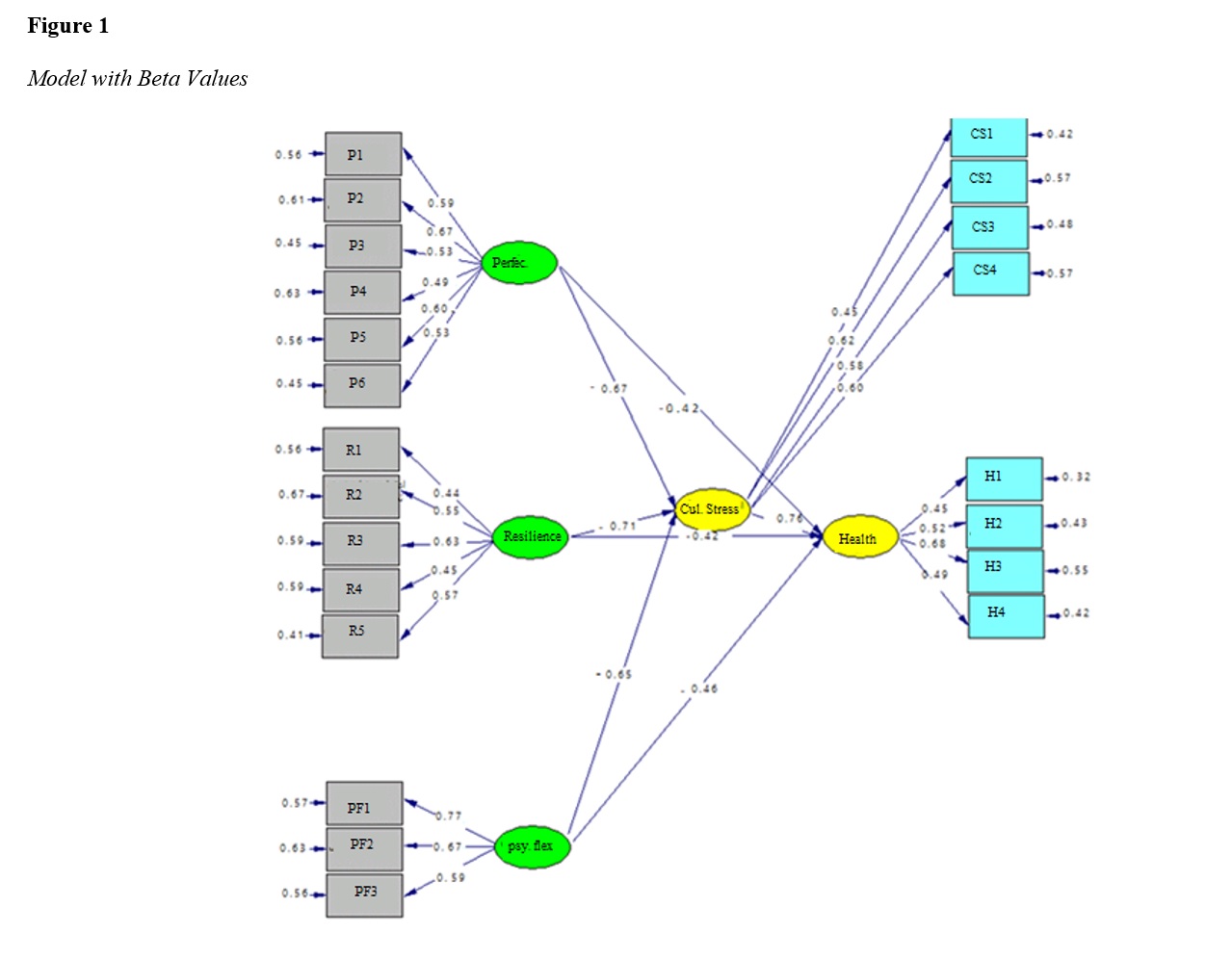Modeling the General Health of Iranian Immigrants Based on Cognitive Flexibility, Resilience, and Perfectionism with the Mediation of Acculturation Stress
Abstract
Objective: The current study aimed to determine the fit of the proposed model of Iranian immigrants' general health based on cognitive flexibility, resilience, and perfectionism mediated by acculturation stress.
Methods and Materials: The research method was correlational. The population included all Iranian immigrants residing legally in Western Europe, North America, or Oceania. Using convenience sampling, 224 participants were selected and responded to Goldberg’s General Health Questionnaire (1979), Dennis and Vander Wal’s Cognitive Flexibility Inventory (2010), Connor and Davidson’s Resilience Scale (2003), Hill et al.'s Perfectionism Scale (2004), and Havighurst and King’s Cultural Stress Scale (1996). Data analysis was conducted using structural equation modeling with LISREL software 8.80.
Findings: The results showed that the proposed model of general health for Iranian immigrants based on cognitive flexibility, resilience, and perfectionism mediated by acculturation stress was a good fit. The findings also indicated that cognitive flexibility had a negative inverse effect on general health (β = -0.46; p < 0.01); resilience had a negative inverse effect on general health (β = -0.42; p < 0.01); overall perfectionism had a negative inverse effect on general health (β = -0.42; p < 0.01). Acculturation stress had a direct positive effect on general health (β = 0.76; p < 0.01). Cognitive flexibility mediated by acculturation stress had an indirect effect on general health (β = -0.67; p < 0.01); resilience mediated by acculturation stress had an indirect effect on general health (β = -0.74; p < 0.01); and perfectionism mediated by acculturation stress had an indirect effect on the general health of Iranian immigrants (β = -0.65; p < 0.01).
Conclusion: It can be concluded that increasing cognitive flexibility and resilience, along with reducing maladaptive perfectionism, leads to a decrease in acculturation stress and an improvement in the general health of immigrants. Therefore, it is recommended that self-help groups, special information sessions, and stress management psychological workshops for immigrants be organized, emphasizing perfectionism, acculturation, and coping strategies to reduce the physical and psychological health impacts of acculturation stress.
Downloads

Downloads
Additional Files
Published
Issue
Section
License
Copyright (c) 2024 Farzaneh Hasheminejad, Mahdieh Salehi, Nastaran Sharifi (Author)

This work is licensed under a Creative Commons Attribution-NonCommercial 4.0 International License.














